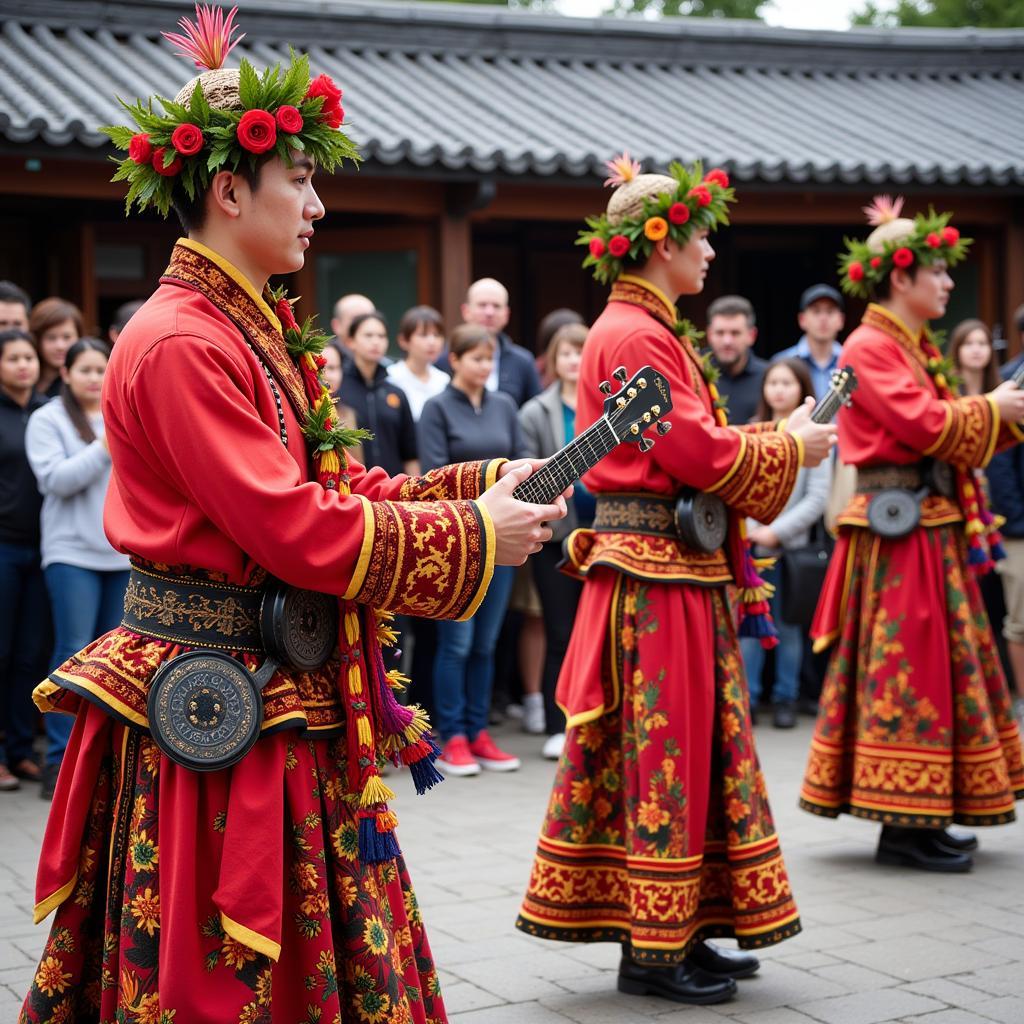Tourism and cultural preservation has been a recurring topic in IELTS Writing Task 2, appearing roughly 2-3 times annually. Based on analysis of past exam questions, this theme commonly appears in Agree/Disagree or Discussion essays. Let’s examine a recent question that appeared in 2023:
Some people believe that tourism helps preserve local cultures, while others argue it destroys them. Discuss both views and give your own opinion.

Analysis of the Question
- Topic: Tourism’s impact on cultural preservation
- Task: Discussion + Opinion
- Two opposing views to discuss:
- Positive: Tourism helps preserve culture
- Negative: Tourism destroys culture
- Personal opinion required
Sample Essay 1 (Band 8.5)
The relationship between tourism and cultural preservation is complex and debatable. While some argue that tourism contributes positively to maintaining cultural heritage, others contend that it leads to cultural degradation. In my view, although tourism can pose certain risks to local cultures, its benefits for cultural preservation generally outweigh the drawbacks.
Tourism can significantly contribute to cultural preservation in several ways. Firstly, tourist interest in local traditions creates economic incentives for communities to maintain their cultural practices. For instance, in Bali, Indonesia, traditional dance performances that might have disappeared are now regularly staged for visitors, allowing these art forms to survive and thrive. Additionally, tourism revenue often funds the restoration and maintenance of historical sites and cultural monuments. The preservation of ancient temples in Cambodia’s Angkor Wat complex, for example, is largely supported by tourism income.
However, critics argue that tourism can erode authentic cultural practices. When traditional ceremonies and customs are modified to accommodate tourist preferences, they risk losing their original significance and becoming mere entertainment. For example, some traditional festivals in Thailand have been shortened and simplified to create more tourist-friendly versions. Moreover, increased exposure to foreign influences through tourism can lead young people to abandon their cultural heritage in favor of global popular culture.
Despite these concerns, I believe tourism’s role in cultural preservation is predominantly positive. The financial resources generated by tourism enable communities to maintain their cultural practices while adapting to modern realities. Without tourism income, many traditional crafts, performing arts, and cultural sites might disappear due to lack of funding. Furthermore, tourism often sparks renewed local pride in cultural heritage as communities see outsiders valuing their traditions.
In conclusion, while tourism can present challenges to cultural authenticity, its overall impact on cultural preservation is beneficial when properly managed. The key lies in finding a balance between making cultural experiences accessible to visitors while maintaining their integrity and significance.
Sample Essay 2 (Band 6.5)
Nowadays, tourism is very popular around the world. Some people think it helps to save local cultures, but others say it destroys them. I will discuss both sides and give my opinion.
On the positive side, tourism brings many benefits for local culture. First, when tourists come to visit, they spend money on traditional things like handicrafts and cultural shows. This helps local people earn money from their culture. Second, many historical places get money from tourist tickets to repair old buildings and temples. For example, in my country, many old temples use money from tourism to stay in good condition.
But there are also some problems. When too many tourists come, local people sometimes change their traditions to make tourists happy. Some traditional festivals become more like shows for tourists than real cultural events. Also, young people in tourist areas sometimes forget their own culture because they see too many foreign things.
I think tourism is mostly good for culture. Even though there are some problems, tourism gives money to help keep traditions alive. Without tourism, many traditional things might disappear because people need money to live. Also, when tourists show interest in local culture, local people feel more proud of their traditions.
In conclusion, I believe tourism helps more than it hurts local cultures. However, it is important to manage tourism carefully to protect real cultural traditions.
Scoring Explanation
Band 8.5 Essay:
- Clear progression of ideas with logical organization
- Wide range of vocabulary: “economic incentives,” “cultural degradation,” “authentic cultural practices”
- Complex sentence structures used effectively
- Strong coherence and cohesion
- Clear position throughout with well-developed arguments
Band 6.5 Essay:
- Basic organization with some development
- Limited but adequate vocabulary
- Mix of simple and complex sentences
- Basic cohesive devices
- Clear position but simpler arguments
Key Vocabulary
- cultural preservation (n) /ˈkʌltʃərəl ˌprezəˈveɪʃən/ – the protection and maintenance of traditional practices
- authenticity (n) /ˌɔːθenˈtɪsəti/ – the quality of being genuine or real
- degradation (n) /ˌdeɡrəˈdeɪʃən/ – the process of something being damaged or worn down
- indigenous (adj) /ɪnˈdɪdʒənəs/ – naturally existing in a place
- commercialization (n) /kəˌmɜːʃəlaɪˈzeɪʃən/ – the process of making something available for profit
- heritage (n) /ˈherɪtɪdʒ/ – traditions passed down from previous generations
- erosion (n) /ɪˈrəʊʒən/ – gradual destruction or diminishment
- commodification (n) /kəˌmɒdɪfɪˈkeɪʃən/ – the transformation of goods into commodities
Related topics you might encounter:
- Mass tourism’s impact on local communities
- Sustainable tourism development
- Cultural exchange through tourism
- Economic benefits vs. cultural costs of tourism
Practice writing your own essay and share it in the comments for feedback!